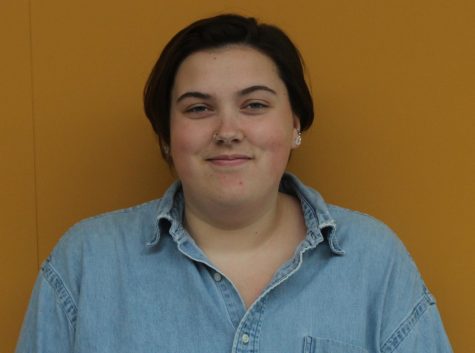2018 Midterms elections bring new faces to US legislation
February 6, 2019
On Nov. 6, 2018, over 113 million American voters (49 percent) gathered to their local polling places to vote. The 2018 midterms produced the highest voter turnout recorded for any US midterm, something not seen in any election since 1966, presidential elections included.
Richard Thompson, 12, voted for the first time this year. He recalls his experience saying many people were surprised at the numbers of voters who showed up. He said, despite the long lines, it was good.
Thompson comments on the importance of voting saying it’s people’s “civil duty.”
“Voting allows everyone to have their own voice,” said Thompson, “Everyone should exercise their civil duty because before anything the people’s choices are what matter and as long as people speak up, we’ll actually get [stuff] done.”
Thompson also mentioned the Republican majority of Nebraska, something that was potentially up for change in the last election.
Positions up for grabs included all seats in the House of Representative, 1/3 of Senate, 36 governors, over 6,600 state positions and thousands more locally.
By the end of the election, a “blue wave” of democrats had washed over the House of Representatives. Democrats gained 33 seats, boosting them to 230 seats and titling them as the majority party, or party with the most members in a chamber.
While a blue wave may have washed over the House, Republicans remain the majority party in the Senate with 51 seats held by Republicans and 45 seats held by Democrats.
In the election, 102 women, 40 of which were women of color, were elected into the House of Representatives, the largest number in the US’s history.
“It’s going to open up doors,” said Imani Stafford, 12.
Stafford says that having a more diverse Congress, meaning more women, people of color, and other ethnic parties, is going to send a message to younger generations that “this is acceptable.”
Two of the women elected are Rashida Tlaib, 42, and Ilhan Omar, 36, the first Muslim women in the House.
Omar claimed her seat as congresswoman for the fifth District of Minnesota, a state she now hopes to be a safe state for refugees like herself. With this, Omar has been an advocate for Medicare and a higher minimum wage, wanting to increase it to $15.
Tlaib, now congresswoman of Detroit’s 13th congressional district, was an activist prior to her campaign. She advocated for civil and environmental rights, once getting a pile of “pet coke” (petroleum coke), a biproduct of oil refining, accumulated next to the Detroit River removed.
Additionally, many more members of other minority groups were added to legislation throughout the country.
Amongst these people is Jarod Polis, the elect for governor of Colorado and the first openly gay man to take such a position.
“Things are changing very quickly,” said Stafford.
For the future, she hopes that the newly elected can work with the younger generations to reach a common goal. Above all, she hopes that people can learn to have an “open mind.”


